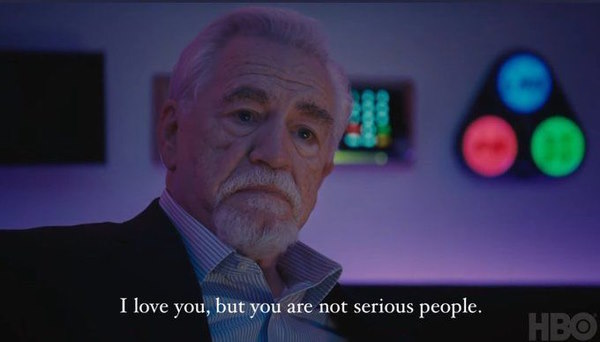“For the moment, though, Musk has learned the same lesson Jack Dorsey did: Twitter is extremely hard to kill. And for the journalists who have come to rely on it, there is almost no indignity they won’t suffer to get their fix.”
—Casey Newton, The Platformer
I’ve had conversations with several industry colleagues — media and libraries — about Twitter over the past few months and the main reasons for those who can’t quit it seem to be a) inertia, b) work responsibilities, and/or c) they enjoy train wrecks. I’ve also heard variations on showing support for specific communities and staying connected to current events, the latter of which no other platform comes close to replicating yet.
I owe whatever “platform” I currently have partially to being on Twitter for 14 years, and I built or expanded a decent presence there for a few brands during that time, so I get that it’s a difficult choice to just walk away.
I finally escaped Facebook a few years ago once I no longer had day job responsibilities tying me to it, but reluctantly still use Instagram — personally and for work. I moved my newsletter to Substack despite its subsidizing some unsavory voices, and I think about that compromise every other week when I send out an issue. TikTok never clicked for me, so I don’t have any personal feelings about the controversies surrounding it, but I’m concerned by book publishers’ current obsession with it.
Every platform comes with its pros and cons, and the only way to not be a hypocrite on some level is to just not be online at all.

Are You Influential, or Just Another Follower?
“Twitter added a ‘state-affiliated media’ tag to NPR’s main account on Tuesday, applying the same label to the nonprofit media company that Twitter uses to designate official state mouthpieces and propaganda outlets in countries such as Russia and China.”
—Bill Chappell, NPR
All that said, I think most brands are making a mistake by continuing to engage on Twitter, and among the worst offenders are journalists and news outlets for whom Musk regularly shows unbridled contempt. Whether it’s the outright banning of individual journalists he doesn’t like, or the recent mis-labeling of NPR’s account, Twitter has become an even more dangerous platform for spreading misinformation under Musk — a comically dystopian combination of The New York Times and Truth Social.
If Twitter is a primary source of traffic — not “engagement” on Twitter, but actually driving traffic to owned sites — that’s an opportunity to change behavior, not just accept the status quo. For a lot of organizations, their individual presence on Twitter isn’t what’s driving most of that traffic so they wouldn’t lose most of it by freezing their accounts and proactively pointing followers elsewhere.
If Twitter is a primary source of “engagement” but not traffic, you have a much bigger problem — you don’t actually have an audience of your own, and you’re probably not as influential as you think you are. Staying on Twitter without developing and implementing a Plan B is like pulling up a chair to listen to the band play while the Titanic sinks with you all on it. If your social media team can’t come up with a Plan B, you also have a staffing problem.
In 2023, most news outlets with any credibility should be able to find and/or move their audiences to other platforms, especially if they’ve spent the past decade-plus building an engaged email list. It’s not going to be easy and it will take time, just like building up a following and engagement on Twitter wasn’t easy and took time, but continuing to engage on a platform that’s openly antagonizing journalists while embracing and emboldening the worst among us is bad for journalism, and bad for the journalism business.
Be the Change
As bad as journalists and new organizations’ inability to quit Twitter is, part of the problem is they’re following a basic rule of marketing: find your audience and engage them where they are. It’s why most of them reluctantly got on Twitter years ago to begin with.
At the end of the day, users have a collective influence far stronger than most media brands, so as long as enough people stick around to forestall the almost inevitable bankruptcy, status quo wins. If you don’t have a problem with how things are going with Twitter, that’s one thing. But if you’re frustrated, disturbed, concerned, appalled, or feel somehow aggrieved by what’s happening there, continuing to engage is the surest way to keep things from changing.
Send a clear message: park your account, stop logging in, and explore the many alternatives to stay connected to the communities and news sources you care about. It’ll take some work and you may find yourself disconnecting from old favorites, but you’ll also discover new ones doing things differently; new people who weren’t previously on your radar; maybe even new interests that are better represented elsewhere.
It’s been six months since I cut Twitter out of my digital diet, and although the first couple of months were difficult, I’m enjoying my new normal without it. I’m writing and reading more often and more widely; I’ve met new people doing interesting things in my areas of interest and beyond; I’m more tapped into local and regional news, and rarely see the bad hot takes that used to dominate my feed every day.
A better online world exists if you want it, but you have to build it for yourself. The algorithms won’t do it for you, and in many cases, are actively working against you.
Do you like email?
Sign up here to get my bi-weekly "newsletter" and/or receive every new blog post delivered right to your inbox. (Burner emails are fine. I get it!)

